regulator
Latest
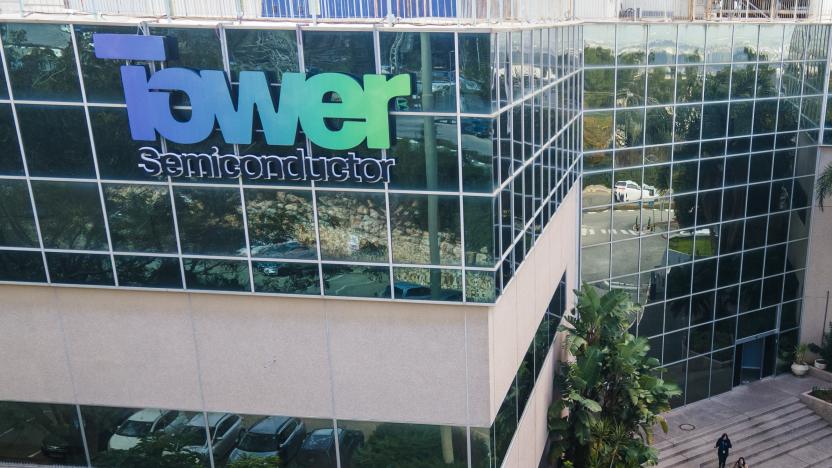
Intel walks away from its $5.4 billion takeover of Tower Semiconductor
After announcing the deal last year, Intel will no longer acquire Tower Semiconductor for $5.4 billion.
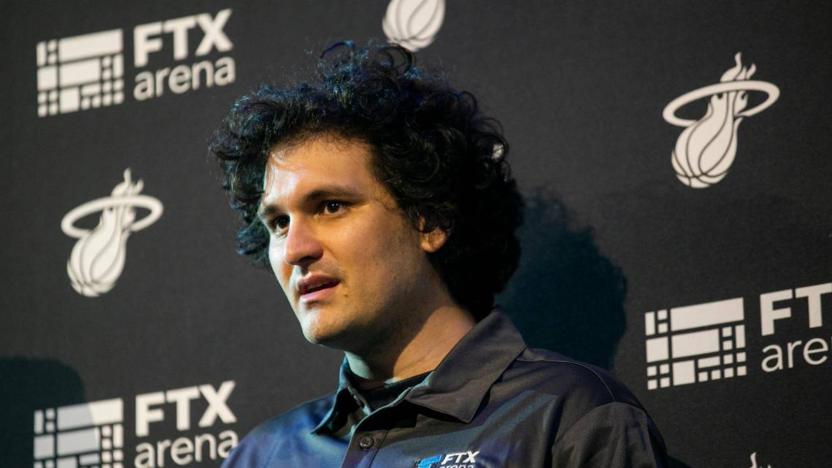
SEC charges FTX co-founder Sam Bankman-Fried with 'defrauding investors'
Following his arrest in the Bahamas, the US Securities and Exchange Commission (SEC) has charged FTX co-founder Sam Bankman-Fried with "defrauding investors."
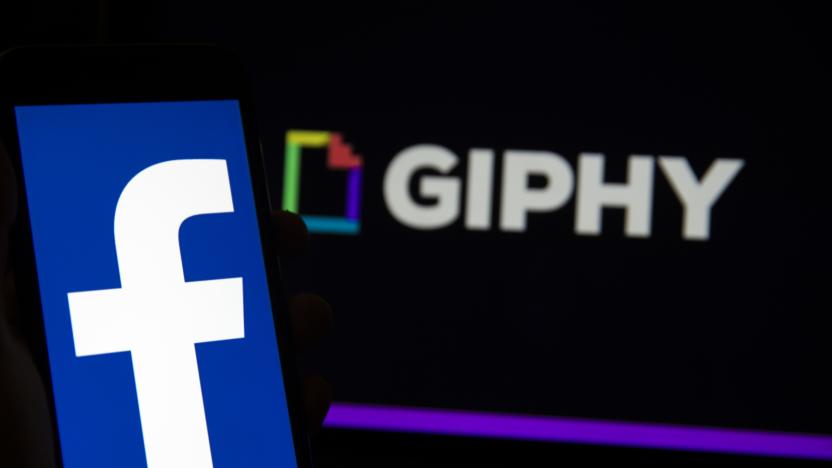
UK competition regulator orders Meta to sell Giphy
UK's Competition and Markets Authority (CMA) has ordered Meta (Facebook) to sell Giphy, saying the deal "could harm social media users and UK advertisers."
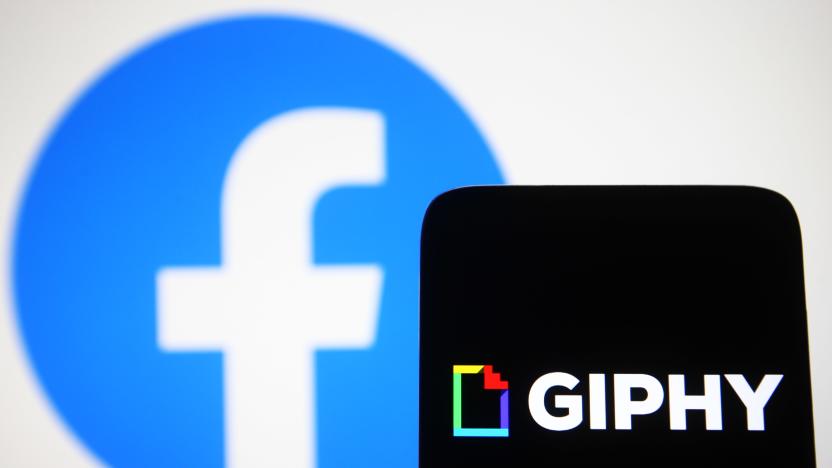
The UK's antitrust regulator is reportedly set to block Meta's purchase of Giphy
It would be the first Competition and Markets Authority reversal of a Big Tech acquisition.
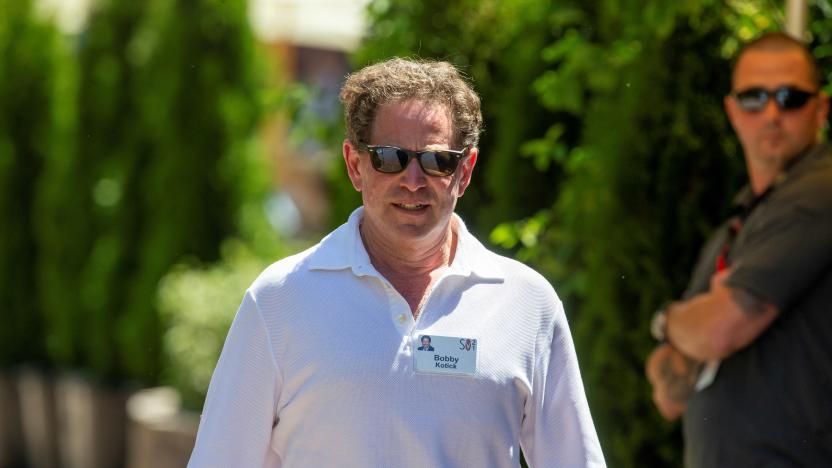
Activision Blizzard says it's cooperating with investigations into workplace practices
Meanwhile, Blizzard's chief legal officer just left the company.

The UK is investigating NVIDIA's acquisition of ARM
The UK’s competition regulator has launched an investigation into NVIDIA’s $40 billion acquisition of ARM.
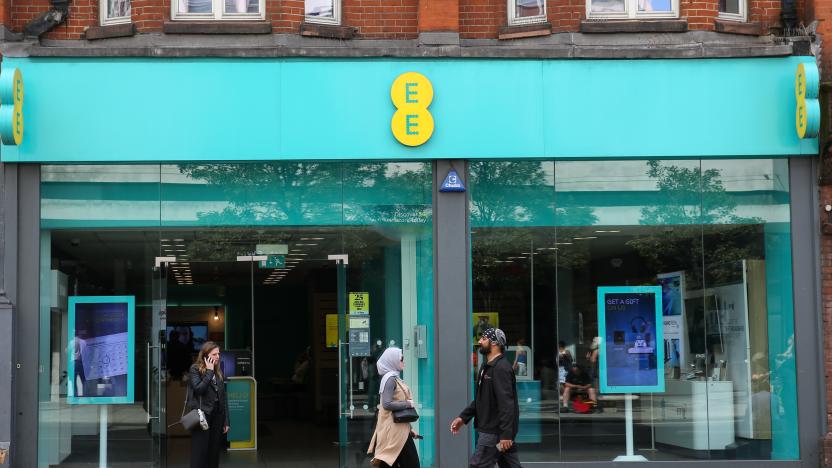
UK will ban mobile carriers from selling locked handsets in 2021
Mobile operators in the UK will be banned from selling smartphones locked to their networks, according to the regulator Ofcom.

UK wants telecoms regulator to police social media companies
The UK government wants to put Ofcom in charge of regulating social media. Digital secretary Nicky Morgan and home secretary Priti Patel said they were "minded" to appoint the watchdog due to its experience and "proven track record" overseeing the UK's media and telecommunications industries. It would also avoid regulatory fragmentation, Patel and Morgan said, and be quicker to set up than a new regulator. Ofcom will be granted new powers to carry out its expanded responsibilities, which will cover any platform that hosts user-generated content, including comments and forum posts. It's safe to assume that social media giants including Facebook, YouTube, Twitter and TikTok will be in its cross-hairs, then.

The UK’s porn license plan remains a mess
In the end, we 'll be left with a system that can't work, run by a company that doesn't want it to work, and that won't protect the very people it's intended to protect.

Ofcom fines EE £2.7 million for overcharging customers
Oh dear. Ofcom has caught another mobile carrier failing in its duty to provide decent customer support. The villain this time is EE, after it overcharged more than 30,000 customers for calling its "150" service line. These subscribers had calling while roaming in the EU -- the problem is they were charged £1.20 per minute, rather than EE's promised 19p per minute rate. That "carelessness" and 'negligence," as Ofcom describes it, led to a combined overcharge of £245,700 between July 2014 and 2015. EE is now being fined £2.7 million for the mess, which needs to be paid in 20 working days. Ofcom will then transfer the money to the UK's Treasury.

Vodafone fined £4.6m after PAYG top-up fails
Vodafone has been slapped with a hefty £4.6 million fine after failing to process customer top-ups. UK regulator Ofcom found that 10,452 pay-as-you-go (PAYG) customers weren't given a combined £150,000 in credit between December 2013 and April 2015. The affected users were relying on "E Top-Up" methods, including cash machines, direct debit, and E Top-Up swipe cards. According to Ofcom, the embarrassing snafu occurred after Vodafone changed its internal billing systems in 2010. The company "failed to act quickly enough" to address the problems and only stopped "customers from paying money for nothing" after Ofcom intervened.

Europe's looking into tighter controls for America's tech titans
Almost all of the world's biggest tech companies are American, a fact that's got the European Union slightly worried. So worried, in fact, that the EU has started looking into forming a regulatory body with the power to monitor companies like Google and Facebook, ensuring that they don't abuse their dominant market position. A research document, prepared for digital commissioner Günther Oettinger and leaked to the Wall Street Journal, shows that officials are worried about these businesses threatening Europe's entire economy.

Ofcom slaps Three with a £250,000 fine for failing to handle customer complaints
While Three is currently the UK's fastest-growing network, it certainly can't rest on its laurels. In fact, it's just been given a sharp wake-up call, after Ofcom, the UK's communications regulator, handed the carrier a £250,000 fine over its inadequate handling of customer grievances. According to the watchdog, Three closed complaints before they were fully resolved and was guilty of not logging complaint calls from customers when it should have done. While it now has to hand over a cool quarter of a million to appease Ofcom (which is then absorbed by the Treasury), Three has apparently sorted out its internal processes and is now compliant with regulations -- good news if you enjoy the carrier's unlimited tariffs but weren't so impressed by its customer service.

Uber and other taxi apps score a victory as Seattle has a change of heart
Uber's having a pretty tough time over in Europe, but it's having a luckier streak in the US. After Seattle city council members upheld their decision to place limits on private taxi companies like Uber earlier this year, the city has now reversed that decision, allowing each service to operate free of extra restrictions. They will, however, have to adhere to a few minor rules. Geekwire reports that Uber, Lyft and Sidecar will need to be licensed as as transportation network companies so that they (and their drivers) can meet insurance requirements. Seattle officials also scrubbed the 150-driver limit that was placed upon them (Uber says it has around 1,000 drivers in the city alone). Cab drivers will enjoy less regulation as a result and the city will issue 200 new licences over the next four years, striking a fairer balance for regular taxi companies. Although Uber and Lyft drivers will be forced to jump through a few additional hoops, the agreement is a massive win for the startups that they represent. Regulators in other cities seeking to enforce stricter limits on private hire companies could turn to Seattle for inspiration, but will experience vocal opposition from taxi firms regardless of what they decide.

Microsoft's deal to buy Nokia gets thumbs-up from China
When one massive corporation buys another one, it's not as simple as handing over the dosh and winking. There's also the small matter of the world's competition authorities, which check that the deal won't affect market conditions. China has finally given its blessing to the Microsoft - Nokia tie-up, meaning that the pair can make their marriage official, probably before the end of April. Of course, that only gives us a few days to work out a facetious portmanteau to name the pair -- Microkia and Nokrosoft are all we've got so far.

Dutch regulator says Google's privacy policy breaks the law
Almost two years after it updated its privacy policy, Google is still facing the wrath of European watchdogs. The Dutch Data Protection Authority (DPA) has just ended a seven-month investigation into the search giant's practices and, similar to rulings in the UK and France, has deduced that Google isn't doing enough to inform users about the data it "collects and combines." The DPA accuses Google of spinning an "invisible web of our personal data without our consent" with its Search, Gmail and YouTube services, which it states in no uncertain terms "is forbidden by law." It's another knock for Google, which has found itself under investigation by a total of six European privacy authorities after French privacy regulator CNIL initiated action on their behalf last year. Google has said that it "respects European law," but its commitment will be tested at the Dutch DPA's upcoming hearing, after which the authority will decide it wants to take "enforcement measures" against the company.

UK carriers will be forced to let customers ditch mobile contracts if they raise prices
No one likes a price hike, especially mid-contract. Neither does UK regulator Ofcom it seems, which is setting out new policy clarification for mobile, broadband and landline suppliers. The guidance is to prevent different "interpretations" of existing policy, and will ensure customers can leave their contracts -- without penalty -- if prices are raised during a their contract. No one can argue that's not good for consumers, but it won't come into place for three months, and only applies to contracts taken out after that. It also doesn't apply to other general changes in terms and conditions, or when price goes up due to other factors (exceeding a data bundle etc). Still, come the new year, signing on that dotted line should give folk in the UK a little less anxiety.

French regulator moving forward with Verizon / AT&T interconnection investigation
When you think about it, does anyone really know what's going on behind the scenes of the internet? While you're attempting to figure out how "42" is the obvious answer to that, French regulator ARCEP is moving ahead with an investigation into Verizon and AT&T. Specifically, the two have failed in an attempt to block the aforesaid entity from investigating interconnection agreements. For those unaware, these types of deals are widely viewed as being able to undermine net neutrality, and we've seen the FCC look into similar matters here in the United States. The long and short of it is as follows: with high-bandwidth services growing rapidly, ISPs far and wide are contemplating the move to extract additional revenue out of backbone providers by charging them to deliver heavy traffic to end users. It'll be interesting to see what ARCEP digs up -- something tells us the findings will be known well beyond the borders of France.

EU antitrust commission charges Microsoft over browser selection 'breach'
European regulators have charged Microsoft for not giving Windows 7 users a choice of internet browsers when they install the OS. Although this is only an initial step towards a fine for the software maker, Microsoft agreed with the European Commission to offer browser choices to its Windows users over three years ago, avoiding a heavy antitrust penalty. Unfortunately, while Microsoft acknowledged the "technical error", this wasn't before the European Commission picked up the issue -- the EU's antitrust watchdog said in July that Microsoft had not complied with the order from February 2011. According to a Reuters report earlier this year, and echoed in the EU's statement below, the fine could amount to as much as 10 percent of the Redmond company's global turnover. Update: Microsoft has issued a statement on the EU charge, received by The Verge. "We take this matter very seriously and moved quickly to address this problem as soon as we became aware of it. Although this was the result of a technical error, we take responsibility for what happened, and we are strengthening our internal procedures to help ensure something like this cannot happen again. We sincerely apologize for this mistake and will continue to cooperate fully with the Commission."

Aussie regulator raps TV makers for touting 'WiFi ready' products
Sony, LG, Panasonic, Samsung and Sharp will no longer be marketing their TVs and Blu-Ray players as "WiFi ready" in Australia unless they're actually ready to connect to a WiFi network. Many products labeled as such often require the additional purchase of a $100-$120 AUD ($80-$100) dongle, and the ACCC, the country's US FTC doppelgänger, has ordered the makers to stop the practice. It all started when a customer complained to the watchdog after feeling burned when his "WiFi ready" TV... wasn't. The fact that similar terms were being used on products that actually have built-in adapters was another strike against the practice, according to the regulator from down under. However, if you happen to reside somewhere else in the world, it's caveat emptor, as usual.







